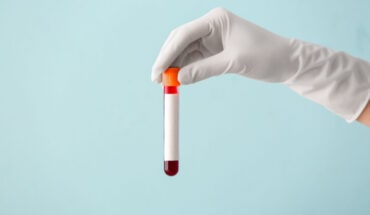New screening test improves detection of Prostate Cancer using circulating tumor cells and prostate-specific markers. Melbourne-based National Institute of Medicine is the first to pioneer a ground-breaking test to detect Prostate Cancer earlier.
Seeking study participants to undertake second phase of research
New Australian research has shown that a ground-breaking test can improve the early detection of Prostate Cancer. Research published in the open access journal Frontiers in Oncology has revealed that the ISET®-Circulating Tumour Cells (CTC) Test can markedly improve detection of prostate cancer, compared to the existing Prostate Specific Antigen (PSA) blood test.
Researchers from the National Institute of Integrative Medicine (NIIM) used the cytology-based ISET®- CTC Test plus PSA marker test, to evaluate the risk of developing prostate cancer in a group of Australian men.1
The ISET®-CTC Test is used to identify abnormal cells circulating in the blood from any origin. By monitoring the presence of CTC cells it may help with the early detection of cancer. Generally, the higher the CTC count, the higher the risk of cancer.
The research findings suggest that the combination of the ISET®-CTC testing and PSA marker testing has an estimated positive-predictive-value (PPV) of 99% and negative-predictive-value (NPV) of 97%. This means there is a greater certainty about diagnosis than the standard PSA-blood-test, which provides a PPV of approximately 25% and NPV of 15.5%.
Prostate cancer is the most common in men, and the second leading cause of cancer deaths (25%) in Australia.2 One-in-Seven Australian men will be diagnosed with prostate cancer by aged 85, with more than 3,300 men dying each year. This number is rising, suggesting the need for a more reliable and accurate way to diagnose the disease.
NIIM Director of Research and Chief Investigator, Associate Professor Karin Ried, said this is an exciting development in helping improve the earlier detection of prostate cancer.
“This new non-invasive test allows for early detection of prostate cancer more accurately than the standard PSA blood test. Improving the accuracy of early testing may also help reduce the burden of unnecessary biopsies, and can facilitate earlier intervention,” said Professor Ried.
NIIM Director Professor Avni Sali AM, said that NIIM will soon be moving to the second phase of prostate cancer research by launching a population study. The Institute is currently looking for 50-75 year old males to participate in the research, to further evaluate the clinical benefits of this test. With a significant donation from the late Mike Navybox and his Ride-with-Mike foundation, which raised awareness of the ISET-CTC test by riding three Grand Cycling Tours in 2019, NIIM is currently seeking 50-75 year old males to participate in further research, and evaluate the clinical benefits of this test.3
“The research we have shared shows promising results for the use of the ISET®-CTC Test for prostate cancer. We anticipate that the next phase of research will provide more significant results as we look to engage with a much larger population group. This next phase is important as we hope to provide treating oncologists and medical practitioners with more data to improve certainty over treatment and recovery,” said Professor Sali.
Successive research and more than 80 peer-reviewed articles from scientists worldwide over 20-years has looked at the efficacy of the ISET®-CTC Test. A large, published epidemiological study has also demonstrated the correlative relationship between an increased number of CTCs in a blood sample and increased cancer risk.
NIIM’s ISET®-CTC test is the only blood test of its kind available to patients in Australia.
To find out more about the criteria and participating in NIIM’s population study for the ISET®-CTC Test for prostate cancer, visit www.niim.com.au/prostatecancertest
About the National Institute of Integrative Medicine
The National Institute of Integrative Medicine, or NIIM, unites innovative research, cutting-edge education and clinical best-practice in Integrative Medicine under a single organisation. As Australia’s pre-eminent leader in Integrative Medicine, we are keen to promote evidence-based medical approaches that combine conventional and complementary therapies, to achieve optimal health and wellbeing.
1 Ried, K. et al. New Screening Test Improves Detection of Prostate Cancer Using Circulating Tumor Cells and Prostate-Specific Markers. Frontiers in Oncology. Access via https://pubmed.ncbi.nlm.nih.gov/32391268/
2 Prostate cancer in Australia. Data available via https://prostate-cancer.canceraustralia.gov.au/statistics
3 https://www.niim.com.au/research/ride-with-mike
- New lipid-based pathway discovered as key to memory formation - 25th June 2025
- Crucial link could explain how Alzheimer’s takes hold - 25th June 2025
- Understanding Your Mind Can Improve Daily Life - 25th June 2025







